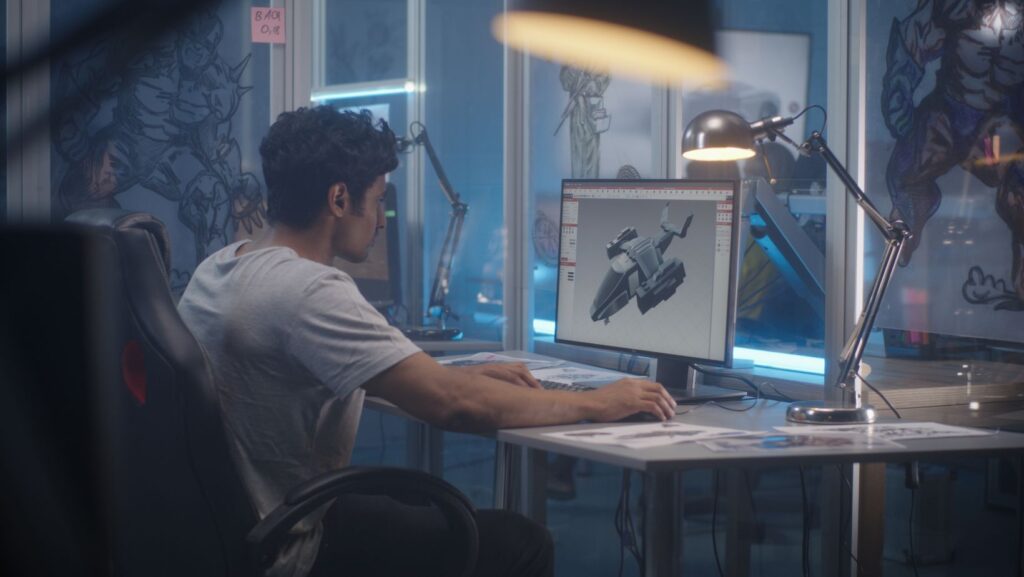Entry Level Game Design Jobs
Are you passionate about gaming and looking to kickstart your career in the industry? As a seasoned game design professional, I’ve navigated the competitive landscape of entry-level game design jobs and I’m here to share my insights with you. Landing your dream job in game design is more achievable than you think, and I’m here to guide you through the process.
In this article, I’ll delve into the exciting world of entry level game design jobs, exploring the skills and qualifications you need to stand out to potential employers. With the right approach and a solid understanding of the industry, you can position yourself as a strong candidate in the competitive field of game design. Let’s dive in and uncover the key strategies to help you secure your first step into the dynamic realm of game development.
When pursuing entry-level game design jobs, aspiring designers can set themselves apart by showcasing a diverse portfolio that includes projects ranging from traditional game development to innovative concepts, including slot online games. Leveraging internships or freelance opportunities can provide invaluable experience and networking opportunities, helping candidates break into the competitive field of game design.
Overview
Entering the world of entry level game design jobs can be both exciting and challenging. It’s a field that thrives on creativity and technological advancements, making it a dynamic industry to be part of. As someone who has navigated through this landscape, I understand the importance of skills and qualifications in securing these coveted positions.
In the competitive realm of game design, having a strong foundation in graphic design, coding languages, and game development tools can significantly boost your chances of landing your dream job. Additionally, demonstrating a passion for gaming and a proactive attitude towards learning and improving your craft can set you apart from other candidates.
It’s essential to stay updated on the latest trends in the gaming industry and continuously work on honing your skills to remain competitive in the job market. Embracing collaboration and teamwork, as well as being open to receiving constructive feedback, are valuable traits that employers look for in potential hires.
Remember, the journey to securing an entry-level game design job may have its challenges, but with dedication, persistence, and a clear understanding of what companies are looking for in candidates, you can position yourself as a strong contender in this ever-evolving field.
Keep striving for excellence and never underestimate the power of putting your best foot forward in pursuit of your passion for game design.

Qualifications for Entry-Level Game Design Jobs
Educational Requirements
Having a degree in computer science, game design, or a related field is often required. Demonstrating proficiency in coding languages such as C++, Java, or Python is crucial. Additionally, gaining knowledge in graphic design and game development tools is highly beneficial.
Skills and Experience
Passion for gaming is key. Showcase your skills by creating your own game projects or participating in game jams. Proficiency in 3D modeling software and animation can make you stand out. Prior experience with game engines like Unity or Unreal Engine is a big plus in the eyes of potential employers.
Top Entry-Level Game Design Jobs
Game Tester
- Testing games for bugs and glitches.
- Providing detailed reports on issues found.
- Average Salary: $39,000 per year.
Junior Game Designer
- Assisting in game concept development.
- Creating game levels, characters, and gameplay mechanics.
- Average Salary: $50,000 per year.
- Designing and building game levels.
- Implementing puzzles, challenges, and interactive elements.
- Average Salary: $56,000 per year.
I always recommend these positions to entry-level professionals seeking to enter the game design industry.

Job Hunting Tips
Building a Strong Portfolio
When applying for entry level game design jobs, having a strong portfolio is crucial. I ensure my portfolio showcases a variety of projects, demonstrating my skills and creativity. Including personal projects and game design samples can make a significant impact.
Networking in the Gaming Industry
Networking plays a vital role in securing game design opportunities. I actively engage in networking events, online forums, and social media groups to connect with industry professionals. Building relationships and seeking advice can lead to valuable career opportunities.
Applying for Internships
Internships are a great way to gain hands-on experience in the game design field. I regularly search for internship programs offered by gaming companies. Applying for internships not only provides practical experience but also allows me to learn from seasoned professionals.
I continuously update my skills, stay proactive, and remain persistent in my job search to increase my chances of landing a rewarding entry-level game design position.

